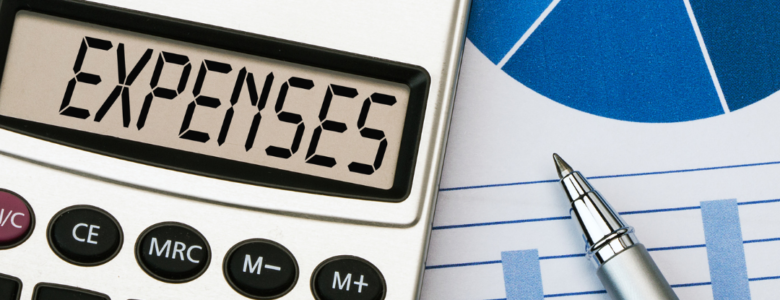When it comes to managing personal finances, understanding deductible expenses is a crucial component. You can subtract deductible expenses from your taxable income, potentially reducing the amount of taxes you owe. However, not all expenses are deductible, and it’s important to know what qualifies and what doesn’t.
In this blog, we’ll take a journey into deductible expenses and explore smart financial choices that can help you make the most of your deductions.
What Are Deductible Expenses?
Deductible expenses are expenses that can be subtracted from your taxable income, reducing the amount of taxes you owe. The IRS allows taxpayers to deduct certain expenses from their income, such as:
- Home Mortgage Interest: The interest paid on a mortgage for a primary or secondary residence is deductible, up to a limit of $750,000 in mortgage debt.
- State and Local Taxes: Taxpayers can deduct state and local income, sales, and property taxes up to a combined limit of $10,000.
- Charitable Contributions: Donations to qualifying charitable organizations are deductible, subject to certain limitations.
- Medical and Dental Expenses: Taxpayers can deduct medical and dental expenses that exceed 7.5% of their adjusted gross income.
- Retirement Contributions: Contributions to a traditional IRA or 401(k) can be deducted from taxable income up to certain limits.
- Business Expenses: Business-related expenses, such as travel and entertainment, can be deducted if they are necessary and ordinary expenses for the business.
- Education Expenses: Certain education expenses, such as tuition and fees, may be deductible.
It’s important to note that not all expenses are deductible. For example, personal expenses such as clothing, groceries, and entertainment are not deductible. Additionally, expenses that are reimbursed by an employer or by insurance are not deductible.
Smart Financial Choices for Deductible Expenses
Now that we’ve covered what deductible expenses are, let’s explore some smart financial choices that can help you make the most of your deductions.
- Keep Accurate Records
Keeping accurate records of your expenses is crucial to maximizing your deductions. To deduct expenses, including receipts, invoices, and canceled checks, you must keep accurate records, as required by the IRS. Failure to provide proof of your deductions during an audit can result in their disallowance.
- Maximize Retirement Contributions
Making contributions to a traditional IRA or 401(k) can help you save for retirement and maximize your deductions. These contributions are deductible up to certain limits, which can reduce your taxable income and potentially lower your tax bill.
- Bundle Your Deductions
If you are close to the standard deduction amount, consider bundling your deductions into one year. For example, if you typically donate $5,000 to charity each year, you could consider making a $10,000 donation in one year, which would allow you to itemize your deductions and potentially lower your tax bill.
- Consider a Health Savings Account
You can use a Health Savings Account (HSA) to pay for qualified medical expenses and benefit from its tax-advantaged savings account features. Contributions to an HSA are tax-deductible, and withdrawals for qualified medical expenses are tax-free. If you have a high-deductible health plan, an HSA can be a smart financial choice for both tax savings and healthcare costs.
- Plan for Business Expenses
Planning for business expenses can help you maximize your deductions if you are self-employed or have a side business. Keeping accurate records of business-related expenses and tracking your mileage can help you deduct these expenses on your tax return.
- Work with a Tax Professional
Working with a tax professional can be a smart financial choice when it comes to deductible expenses. A tax professional can help you navigate the complex tax code and ensure that you are maximizing your deductions. They can also provide advice on how to structure your finances in a tax-efficient manner.
- Consider a Home Office Deduction
If you work from home, you may be eligible for a home office deduction. You can deduct a portion of your home expenses, such as rent, mortgage interest, utilities, and insurance, based on the percentage of your home that you use for business purposes. However, it’s important to understand the rules and limitations of the home office deduction before claiming it on your tax return.
- Review Your Deductions Annually
It’s important to review your deductions annually to ensure that you are still eligible for the deductions you are claiming. For example, if you no longer own a home, you may no longer be eligible for the home mortgage interest deduction. Reviewing your deductions annually can also help you identify any errors or omissions on your tax return.
Therefore, deductible expenses can be a powerful tool for reducing your tax bill and maximizing your financial resources. Understanding what expenses qualify as deductible and making smart financial choices can help you make the most of your deductions.
Making smart financial choices is crucial to maximize your deductible expenses. These include keeping accurate records, maximizing retirement contributions, bundling deductions, considering a Health Savings Account, planning for business expenses, working with a tax professional, considering a home office deduction, and reviewing deductions annually. By proactively managing your finances, you can reduce your tax bill and achieve your financial goals.








